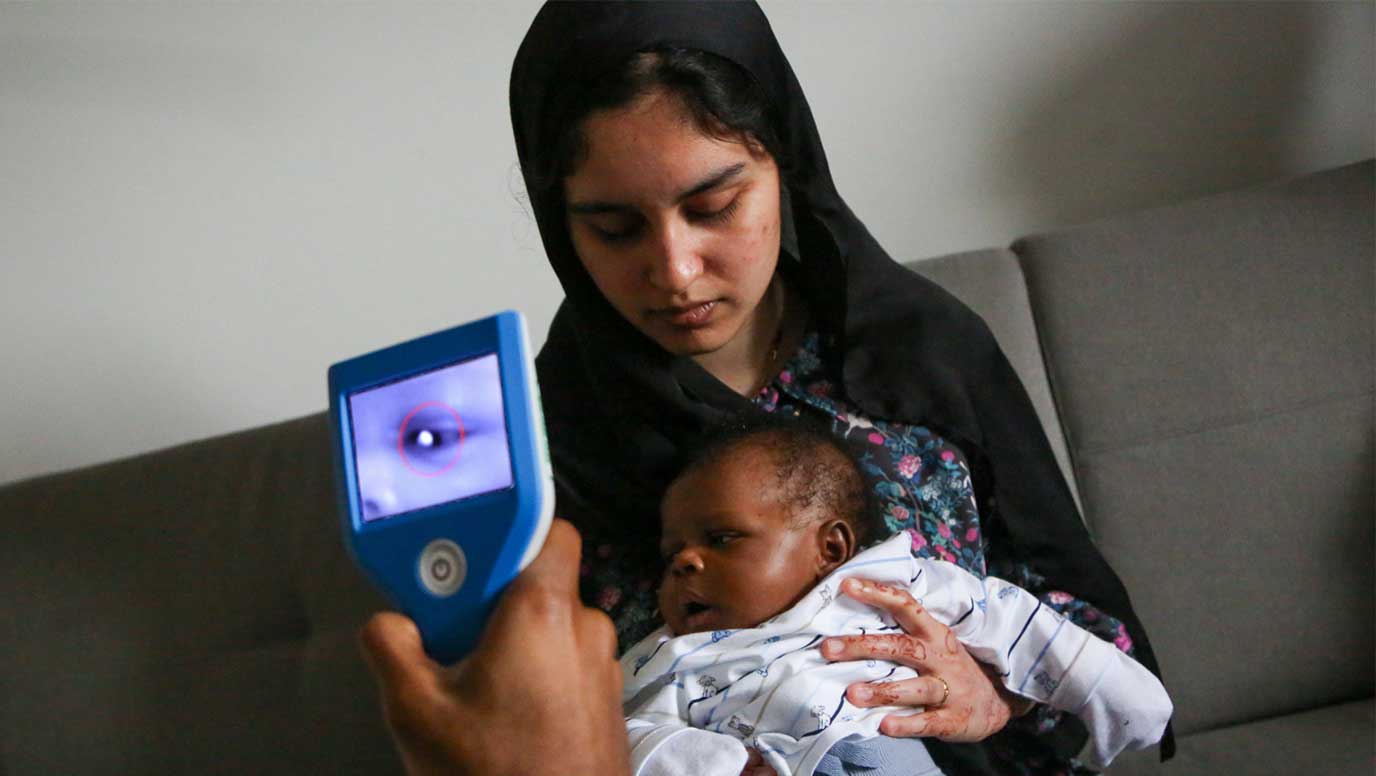42 Technology and Addenbrooke’s Hospital develop AI to boost newborn eye screening

The innovation aims to further improve the accuracy of diagnosing congenital cataracts – the leading cause of avoidable childhood blindness worldwide – when babies are examined in maternity wards shortly after their birth.
A prototype of the Neocam ophthalmic imaging device is being evaluated in a multi-centre clinical trial funded by the National Institute for Health and Care Research (NIHR) as part of the Digital Imaging versus Ophthalmoscopy (DIvO) study.
This five-year study, involving 30 NHS maternity units across England, aims to determine whether Neocam’s digital imaging technology can improve the detection of congenital cataracts compared with the standard ophthalmoscope test, which uses a bright visible light.
Although the final study outcomes are not due to be reported until 2027, the team has already noted some early positive findings. For example, several babies have been diagnosed with rare but significant visual conditions that were missed by the standard screening tests being done at the same time.
The new AI feature will enable Neocam to immediately assess the quality of images as they are taken, providing instant feedback to maternity staff on whether a captured image is clear enough for accurate evaluation.
If an image does not meet the quality required, users can simply retake it. In future, the AI could also potentially be developed to alert the screening midwife or GP to a possible cataract or other eye abnormality but this is not the prime objective for the first AI model.
The software engineering team at 42T will use 46,000 de-identified images from the DIvO study to train the machine learning model. The aim being to integrate the new edge AI algorithms into the first commercially-available eye screening units so the device can analyse images using its existing processing capability – without added costs, needing any hardware redesign or impacting device performance.
The AI development project is being funded jointly by 42T and with an innovation grant from Addenbrooke’s Charitable Trust (ACT), which also helped fund early development and testing of the first prototype device called CatCam.
Dr Louise Allen, consultant paediatric ophthalmologist at Addenbrooke’s Hospital, Cambridge and Neocam’s inventor said: “This novel eye screening technology has been designed to be an affordable, easy-to-use tool to improve the accuracy of diagnosing congenital cataracts in babies.
“The new added AI feature will build on 42 Technology’s previous design and development work, while ensuring the device is even easier for midwives and GPs to use when it is launched commercially.”
42T was appointed in 2018 to help support development of the Neocam prototype, from initial design to clinical trials. The company played a key role in developing the industrial design, user interface, system architecture, optics and electronics, as well as producing 60 prototype Neocam units for early field trials by the London School of Hygiene and Tropical Medicine in sub-Saharan Africa.

